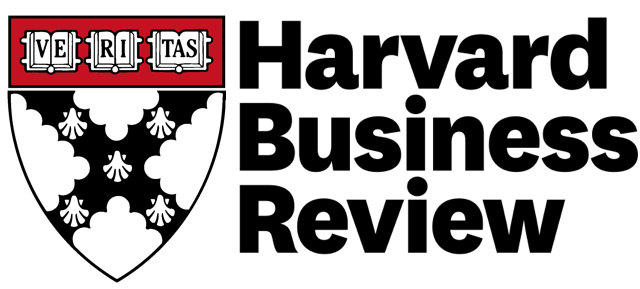WASHINGTON, DC - August 12, 2013 — This week on BIZ + SOCIAL, we bring you the best from the New Global Citizen, The New York Times, Harvard Business Review, and more.
GLOBAL PRO BONO
Annessa Kaufman: Bringing the Art of Curation to Sustainable Tourism
It was a rare day off for me, and my friend Ian had recruited a group of dive instructors to assist in a fish count survey for the environmental impact assessment of a new, proposed deep water cruise ship dock further east along the Honduran island. As I tallied another juvenile grouper on my underwater slate, I caught a flicker of movement out of the corner of my eye. I looked up, hovering a few feet above the reef we were surveying. Only meters away was the reef wall, plunging down into the depths, and beyond the wall was just open water. A beat later and the flicker came again, but this time more fully formed—a reef shark emerging out of the abstract blue from beyond the wall. The shark glided up close and then made a few passes around me. My dive buddy, one breath away from me (safety first!) was doing a little victory dance. A second shark appeared from behind us. Even though I knew the sharks were harmless, my heart was pounding with excitement. Such a rare treat; my buddy and I stopped surveying for a moment to enjoy the two sharks cruising between us. Read More…
IMPACT & INNOVATION
The Charitable-Industrial Complex
 I HAD spent much of my life writing music for commercials, film and television and knew little about the world of philanthropy as practiced by the very wealthy until what I call the big bang happened in 2006. That year, my father, Warren Buffett, made good on his commitment to give nearly all of his accumulated wealth back to society. In addition to making several large donations, he added generously to the three foundations that my parents had created years earlier, one for each of their children to run. Early on in our philanthropic journey, my wife and I became aware of something I started to call Philanthropic Colonialism. I noticed that a donor had the urge to “save the day” in some fashion. People (including me) who had very little knowledge of a particular place would think that they could solve a local problem. Whether it involved farming methods, education practices, job training or business development, over and over I would hear people discuss transplanting what worked in one setting directly into another with little regard for culture, geography or societal norms. Read More…
I HAD spent much of my life writing music for commercials, film and television and knew little about the world of philanthropy as practiced by the very wealthy until what I call the big bang happened in 2006. That year, my father, Warren Buffett, made good on his commitment to give nearly all of his accumulated wealth back to society. In addition to making several large donations, he added generously to the three foundations that my parents had created years earlier, one for each of their children to run. Early on in our philanthropic journey, my wife and I became aware of something I started to call Philanthropic Colonialism. I noticed that a donor had the urge to “save the day” in some fashion. People (including me) who had very little knowledge of a particular place would think that they could solve a local problem. Whether it involved farming methods, education practices, job training or business development, over and over I would hear people discuss transplanting what worked in one setting directly into another with little regard for culture, geography or societal norms. Read More…
LEADERSHIP
Three Differences Between Managers and Leaders
 A young manager accosted me the other day. “I’ve been reading all about leadership, have implemented several ideas, and think I’m doing a good job at leading my team. How will I know when I’ve crossed over from being a manager to a leader?” he wanted to know. I didn’t have a ready answer and it’s a complicated issue, so we decided to talk the next day. I thought long and hard, and came up with three tests that will help you decide if you’ve made the shift from managing people to leading them. Counting value vs Creating value. You’re probably counting value, not adding it, if you’re managing people. Only managers count value; some even reduce value by disabling those who add value. If a diamond cutter is asked to report every 15 minutes how many stones he has cut, by distracting him, his boss is subtracting value. Read More…
A young manager accosted me the other day. “I’ve been reading all about leadership, have implemented several ideas, and think I’m doing a good job at leading my team. How will I know when I’ve crossed over from being a manager to a leader?” he wanted to know. I didn’t have a ready answer and it’s a complicated issue, so we decided to talk the next day. I thought long and hard, and came up with three tests that will help you decide if you’ve made the shift from managing people to leading them. Counting value vs Creating value. You’re probably counting value, not adding it, if you’re managing people. Only managers count value; some even reduce value by disabling those who add value. If a diamond cutter is asked to report every 15 minutes how many stones he has cut, by distracting him, his boss is subtracting value. Read More…
CITIZEN DIPLOMACY
Evolving the Handshake: Global Youth as Citizen Diplomats
 Forty-three percent of the world’s population is currently under 25—and the number of young people is rising fastest in the developing world. Today’s youth are more connected and tuned in to the world than any generation before. Youth see the challenges before them in fresh ways and are responding with enthusiasm and imagination, and have maximized cultural exchange, social media, video, and journalistic platforms for outreach and advocacy. Citizen diplomacy provides a unique opportunity for young people who often feel marginalized by decision-makers, allowing them to have a voice and forge lasting relationships with a diverse community of civic actors. Critics argue that citizen diplomats support a very narrow issue area, and have a difficult time articulating a broader catalogue of strategic foreign policy priorities. Read more…
Forty-three percent of the world’s population is currently under 25—and the number of young people is rising fastest in the developing world. Today’s youth are more connected and tuned in to the world than any generation before. Youth see the challenges before them in fresh ways and are responding with enthusiasm and imagination, and have maximized cultural exchange, social media, video, and journalistic platforms for outreach and advocacy. Citizen diplomacy provides a unique opportunity for young people who often feel marginalized by decision-makers, allowing them to have a voice and forge lasting relationships with a diverse community of civic actors. Critics argue that citizen diplomats support a very narrow issue area, and have a difficult time articulating a broader catalogue of strategic foreign policy priorities. Read more…
ENTERPRISE DEVELOPMENT
Building Capacity for Truly Equitable Development
 Supporting social change leaders and entrepreneurs from non-traditional backgrounds requires an investment on many levels besides just capital. Through mechanisms such as fellowships, potential investors – whether from the corporate or philanthropic world – can provide not only the financial capital but also the support systems that emerging social entrepreneurs and other types of community-based leaders need in order to effectively break down the barriers to long-term social change. The key is to identify and then invest in the right people. But for emerging leaders in developing countries who come from marginalized communities, where do the barriers actually begin? If we agree that achieving equitable development means supporting people who live closest to – and therefore maintain a deeper understanding of – the problems they want to solve, then we need to reevaluate how and in whom we make our investments. Read More…
Supporting social change leaders and entrepreneurs from non-traditional backgrounds requires an investment on many levels besides just capital. Through mechanisms such as fellowships, potential investors – whether from the corporate or philanthropic world – can provide not only the financial capital but also the support systems that emerging social entrepreneurs and other types of community-based leaders need in order to effectively break down the barriers to long-term social change. The key is to identify and then invest in the right people. But for emerging leaders in developing countries who come from marginalized communities, where do the barriers actually begin? If we agree that achieving equitable development means supporting people who live closest to – and therefore maintain a deeper understanding of – the problems they want to solve, then we need to reevaluate how and in whom we make our investments. Read More…
New Global Citizen
The New Global Citizen chronicles the stories, strategies, and impact of innovative leadership and international engagement around the world. This is the world of the new global citizen. This is your world.



